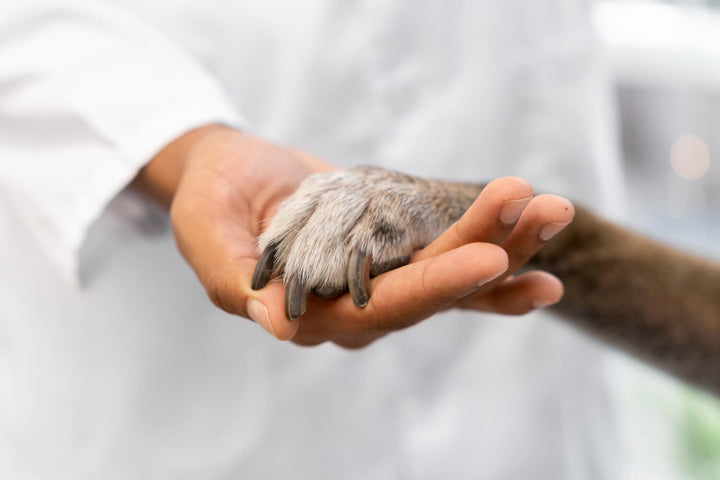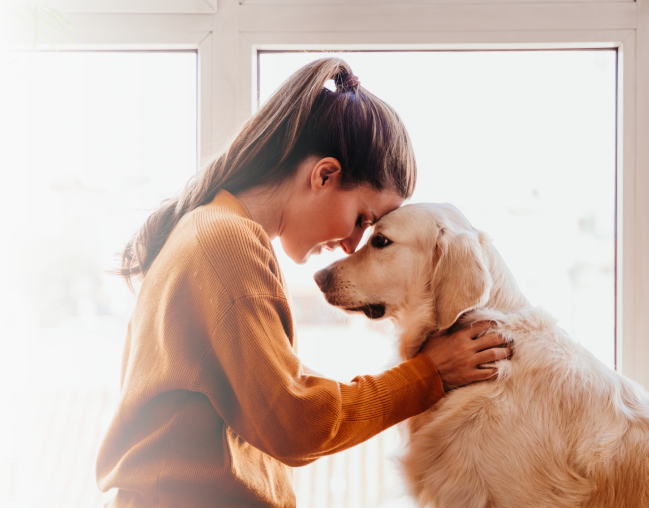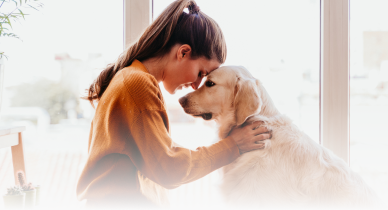The Havanese, a breed with roots tracing back to the island of Cuba, is a charming and affectionate small dog breed that has captured the hearts of dog lovers worldwide. Often referred to as "Velcro dogs" for their strong bond with their owners, Havanese are known for their lively spirit, silky coat, and expressive eyes. They make exceptional family pets and have a fascinating history.
Did You Know these Facts about the Havanese?
-
The Havanese was once the cherished companion of Cuban aristocrats in the 18th century. Their adoration led to the breed's nickname, "The Havana Silk Dog."
-
Havanese dogs are part of the Bichon family, related to breeds like the Bichon Frise and the Maltese.
-
The Havanese is Cuba's national dog and is an essential part of the country's cultural heritage.
-
These dogs are classified as toy-sized, making them perfect for apartment living.
- Thanks to their compact size and friendly disposition, Havanese dogs excel as travel companions.
Havanese dogs might not be the most famous breed, but they've been steadily climbing the popularity charts. They consistently rank among the top 25 breeds registered by the American Kennel Club (AKC). In fact, they reached spot #25 in the AKC's 2022 popularity list. Their appeal lies in their wonderful temperament and manageable size, making them suitable for various living situations.

Traits of the Havanese Breed
Personality. Havanese dogs are affectionate and outgoing, making them excellent family pets. They thrive on human companionship and are known for their playful nature. Their friendly disposition makes them great with kids and other pets. They are also intelligent and eager to please, which aids in training.
Family Life. Havanese dogs are ideal family members. They are adaptable, whether you live in an apartment or a house with a yard. Their small size makes them suitable for city living, but they also enjoy outdoor activities. They are good with children, forming strong bonds and providing endless entertainment.
Appearance. Havanese dogs have a distinctive long, silky coat that can be various colors, including white, cream, fawn, sable, and more. Their expressive dark eyes are a hallmark of their appearance, accentuating their friendly and alert expression. They have a sturdy build with a plumed tail that arches gracefully over their back.
Sociability. These dogs are naturally social and enjoy being the center of attention. They are known to be friendly with strangers, making them less suitable as guard dogs but excellent as Emotional Support Animals and therapy dogs. Their love for human interaction makes them thrive in social settings.
Average Sizes & Life Expectancy
- Height: 8 to 11 inches tall (20to 28 cm)
- Weight: 7 to 13 pounds (3 to 6 kg)
- Life Expectancy: Around 13 to 15 years
Detailed Description of the Havanese Breed
Physical Appearance. Havanese dogs belong to the toy group and typically stand between 8 to 11 inches (20 to 28 centimeters) at the shoulder, with a weight ranging from 7 to 13 pounds (3 to 6 kilograms). Their small stature makes them perfect for apartment living, yet their personalities are larger than life.
One of the most striking features of the Havanese is their exquisite coat. It is long, silky, and flows gracefully, often covering their dark, expressive eyes. The coat can be found in a variety of colors, including white, cream, fawn, sable, black, and even a combination of these shades. The texture of their coat is soft to the touch, earning them the "silk dog" moniker.
Their well-proportioned bodies are covered with this luxurious coat, and their plumed tails arch gracefully over their backs. Their ears are medium-sized and drop, framing their adorable faces. Their eyes, the windows to their souls, are large and dark, brimming with intelligence and warmth.
Temperament and Personality. Havanese dogs are renowned for their charming personalities. They are social butterflies, always ready to greet both familiar faces and strangers with an enthusiastic tail wag.
Their friendliness knows no bounds, which is why they're often described as "Velcro dogs" – they form strong bonds with their human companions and thrive on their presence.
These adorable little charmers are known for their playful and outgoing nature. They have a zest for life and love engaging in activities that keep them mentally and physically stimulated.
Whether it's a game of fetch, a brisk walk, or simply cuddling on the couch, Havanese dogs are content as long as they're in the company of their beloved humans.
Havanese are intelligent and eager to please, which makes them relatively easy to train. Positive reinforcement methods work exceptionally well with this breed, as they respond positively to praise and treats.
Their intelligence also means they enjoy learning new tricks and commands, making them excellent candidates for canine sports like agility.
Adaptability. Havanese dogs are adaptable in both their living arrangements and their interactions with people. Their small size makes them ideal for apartment living, but they are just as content in larger homes with yards to explore. They are known to adjust well to their surroundings, making them versatile companions for various lifestyles.
One of the standout qualities of the Havanese is their suitability for families. They are great with children, forming strong bonds with kids and providing endless entertainment. Their gentle and playful nature ensures that interactions with children are safe and enjoyable for both parties.
Care Guidelines. Caring for a Havanese dog involves several key aspects, including grooming, exercise, nutrition, and regular veterinary care. Due to their luxurious coat, Havanese require regular grooming. Daily brushing is essential to prevent matting and tangles. Many owners choose to keep their Havanese in a shorter, more manageable haircut. Regular baths and occasional trips to a professional groomer help keep their coat in top condition.
Additionally, regular eye cleaning may be necessary, as their long hair can sometimes irritate their eyes.
Despite their compact size, Havanese dogs are energetic and require daily exercise. A couple of short walks, playtime in a secure backyard, or interactive indoor games will keep them happy and healthy. Mental stimulation is equally important, so consider puzzle toys and training sessions to challenge their clever minds.
Training Strategies. Havanese are intelligent and eager to please, making them receptive to training. Use positive reinforcement techniques, such as treats and praise, to motivate your Cuban cutie. Keep training sessions short and engaging to prevent boredom.
It's important to socialize your Havanese from an early age to ensure they are well-adjusted and comfortable around different people and animals.
Consistency and patience are key to successful training. Stick to a regular routine and be patient with your dog as they learn.
Notable in History and Pop Culture. While Havanese dogs may not be as famous as some other breeds, they have left their paw prints in various aspects of history and pop culture.
In their native Cuba, they were beloved companions of aristocrats and the country's national dog. They have also made appearances in literature and art, capturing the hearts of those who encounter them.
While they may not have achieved widespread celebrity, Havanese dogs are cherished by those who know them for their delightful personalities and unwavering loyalty. They might not be Hollywood stars, but in the eyes of their owners, they shine as brightly as any celebrity.
What to expect when living with the Havanese Breed
Personality. The Havanese is often described as a "velcro dog" because of their strong attachment to their human family members. They are known for their loving, affectionate, and friendly nature. Havanese dogs thrive on human companionship and are happiest when they're part of the family activities. Expect a dog that will want to cuddle with you on the couch, follow you from room to room, and be a constant source of love and affection.
Ideal Environment. Havanese dogs are highly adaptable and can thrive in various living situations. They are well-suited for apartment living, thanks to their small size and relatively low exercise requirements. However, they are just as comfortable in larger homes with yards. Their adaptability extends to different family structures and living arrangements, making them versatile companions.
Maintenance Level. In terms of grooming, the Havanese breed does require regular attention due to their long, silky coat. Daily brushing is necessary to prevent matting, and many owners opt for professional grooming to keep their coats manageable. They are relatively low shedders, which can be a plus for allergy sufferers. Other aspects of care, such as feeding and exercise, are straightforward and do not demand excessive effort.
Overall Health Expectations and Best Health Tests for the Havanese Breed
Health Considerations. The Havanese is generally a healthy breed with a lifespan of around 14 to 16 years. However, like all breeds, they can be prone to certain health issues. Being aware of potential health concerns and scheduling regular veterinary check-ups can help ensure a long and healthy life for your Havanese. Here are some common concerns:
- Hip Dysplasia - Havanese dogs can be susceptible to hip dysplasia, a genetic condition where the hip joint doesn't develop properly. Regular veterinary check-ups can help monitor this condition.
- Progressive Retinal Atrophy (PRA) - PRA is a group of genetic diseases that cause the gradual degeneration of the retina. Regular eye exams by a veterinary ophthalmologist can help detect PRA early.
- Mitral Valve Disease - This heart condition can affect older Havanese dogs. Regular cardiac screenings are advisable, especially as they age.
- Luxating Patellas - Some Havanese dogs may experience patellar luxation, where the kneecap dislocates. Regular check-ups can identify this issue and determine if corrective surgery is necessary.
Recommended Health Tests. Responsible breeding involves health screening for these conditions. Havanese dogs should have the following examinations: eye, cardiac evaluation and hip evaluation.
Best Nutrition, Diet & Supplements for the Havanese Breed
Nutrition and Diet. Opt for high-quality, lean protein sources like chicken, turkey, fish, and lean beef. Protein supports muscle maintenance and overall vitality.
Choose complex carbohydrates such as brown rice, sweet potatoes, and whole grains to provide sustained energy and fiber for digestive health.
Include healthy fats like fish oil and flaxseed oil, which contribute to a shiny coat and support cognitive function.
Incorporate a variety of fresh fruits and vegetables like blueberries, carrots, and spinach as these deliver essential vitamins, minerals, and antioxidants.
Havanese dogs are petite, so portion control is crucial to prevent overfeeding and obesity. Generally, they require about 1/2 to 1 cup of high-quality dog food per day, split into two meals. However, the exact amount depends on factors like age, activity level, and metabolism Divide their daily food intake into two meals to maintain stable blood sugar levels and prevent digestive issues. Consult your veterinarian for personalized feeding recommendations.
Avoid feeding your Havanese table scraps or high-calorie treats. Stick to healthy dog treats for rewards and training.
Hydration is Key. Adequate hydration is essential for Havanese dogs. Encourage your dog to drink plenty of water.
Supplements. While Havaneses can receive essential nutrients from a balanced diet, some supplements can support their overall health.
Omega-3 fatty acids, such as fish oil, can help maintain healthy skin and coat. Additionally, consider supplements like glucosamine and chondroitin to support joint health.
Foods to Avoid. Never feed your Havanese foods including chocolate, grapes, onions, or garlic, which can be toxic to dogs.
Grooming Requirements for the Havanese Breed
Coat Maintenance and Shedding. To prevent matting and tangling, it's recommended to brush your Havanese's coat daily. Use a pin brush or slicker brush to reach through the entire coat. Havanese dogs are known for being low-shedding, which makes them a great choice for individuals with allergies. However, their hair does not stop growing, so regular grooming is essential to prevent matting.
Paw Care and Hygiene. Regularly check their paw pads for any signs of injury or foreign objects. Trim their nails every 2-4 weeks to prevent overgrowth, which can lead to discomfort and difficulty walking.
Eye Care. Keep an eye on tear staining, a common issue in Havanese due to their prominent eyes. Clean the area around their eyes daily to prevent staining.
Bathing Frequency. Bathe your Havanese as needed, typically every 4-6 weeks, but more frequently if they get dirty. Use a mild dog shampoo to avoid skin irritation.
Exercise Required for the Havanese Breed
Aim for at least one 30-minute walk per day. Havanese dogs enjoy strolling and exploring, and it's a great way to bond with your pet. Interactive play sessions are essential. Fetch, tug-of-war, and puzzle toys can help keep them mentally and physically engaged.
Havanese dogs thrive on human interaction and love to be around people. Socialize them with other dogs and people from a young age to ensure they grow up well-adjusted.
Havanese dogs are intelligent, and mental stimulation is just as crucial as physical exercise. Consider obedience training, agility courses, or hide-and-seek games to keep their minds sharp.
Havanese dogs can be sensitive to extreme heat due to their long coats. Avoid exercise during the hottest parts of the day in warm climates.
Training Tips for the Havanese Breed
Havaneses are intelligent and highly trainable dogs. Effective training is crucial to channel their energy and ensure they are well-behaved companions.
Do…
- Use rewards like treats, praise, and toys to motivate and reward good behavior.
- Keep training sessions short and engaging to prevent boredom and maintain their interest.
- Expose your Havanese to various people, pets, and environments from an early age to ensure they become well-adjusted and confident adults.
-
Be consistent with your commands and expectations. Use the same cues for specific behaviors.
Don't…
- Use harsh training methods or punishment, as it can lead to fear and anxiety in your Havanese.
- Skip Socialization. Neglecting socialization can result in shyness or fearfulness.
- Skip Obedience Training. Basic obedience training is essential for safety and proper behavior. Don't skip this crucial step.
- Overfeed Treats. While treats are useful for training, be mindful of overfeeding, as Havanese dogs can gain weight quickly.
The Havanese Breed is Suitable For
Havanese dogs are well-suited for apartment living due to their small size and relatively low exercise requirements. They don't need a large yard to roam and are content with indoor play and daily walks.
Havanese dogs are known for their affectionate and playful nature, making them fantastic family pets. They get along well with children of all ages, provided that children are taught to handle them gently.
Havanese dogs are an excellent choice for seniors looking for companionship. Their manageable size and loving disposition make them wonderful lap dogs.
Havanese dogs can thrive in single-owner households or homes with couples. They offer loyalty and companionship to those seeking a loving pet.
Havanese dogs are generally good with other pets, including cats and dogs, as long as they are properly socialized from a young age. Their friendly nature often helps them get along with other animals.
Havanese dogs adapt their activity level to their owner's lifestyle. They're up for a game of fetch or a leisurely walk, making them suitable for both active and less active individuals.
The Havanese Breed is Not Suitable For
Havanese dogs thrive on human companionship and attention. Homes where they are left alone for extended periods without interaction and mental stimulation are not suitable.
Due to their small size, Havanese dogs are not suitable for homes with very young children who may not understand the need for gentle handling. Havanese dogs should not be kept exclusively in outdoor kennels. They are indoor dogs that require close human contact.
While Havanese dogs are low-shedding and considered hypoallergenic, no dog is entirely hypoallergenic. Homes with severe allergies may not be suitable.
Famous Havanese Owners
-
Barbara Walters - The renowned journalist and television personality, Barbara Walters, is known for her love of Havanese dogs. She owned a Havanese named Cha Cha, who often appeared with her on television.
-
Betty White - The beloved actress and animal advocate, Betty White, was a proud owner of a Havanese named Pontiac. She was known for her dedication to animal welfare causes.
- Ricky Martin - The international music sensation Ricky Martin has a Havanese named Ned. He often shares pictures and moments with his furry friend on social media.
Accomplishments of the Havanese Breed
Havanese dogs have made appearances in various movies and television shows, showcasing their delightful and endearing nature. Their small size and expressive faces make them ideal for on-screen roles. The Havanese is primarily known for its role as a loving and devoted companion. Their ability to form strong bonds with their owners and bring joy to their lives is their most significant accomplishment.
Many Havanese dogs serve as therapy dogs, providing comfort and emotional support to people in hospitals, nursing homes, and schools. Their gentle temperament makes them well-suited for this essential role in society.

The History of the Havanese Breed
Creation and Purpose. The exact origins of the Havanese are somewhat shrouded in mystery, but it is widely believed that they are descendants of small companion dogs brought to Cuba by Spanish colonists in the early 16th century. These dogs, likely Mediterranean in origin, were bred with local Cuban dogs, resulting in a unique and charming breed.
Havanese dogs quickly became favorites among Cuban aristocrats and wealthy families, earning the nickname "Havana Silk Dog" due to their luxuriously soft, long, and silky coats. They were cherished for their affectionate and friendly nature, making them ideal companions for the elite of Cuban society.
However, the Havanese served a dual purpose. Beyond being treasured lap dogs and companions, they were also used as watchdogs. Their keen senses and alert nature made them excellent at warning their owners of approaching strangers.
Early Roles and Evolution. he breed's popularity suffered a significant setback during the Cuban Revolution in the late 1950s. Many wealthy families fled the country, leaving their beloved Havanese behind. As a result, the breed faced a decline in numbers. A few devoted breed enthusiasts managed to bring some Havanese dogs to the United States during the turbulent times in Cuba. This was a critical turning point for the breed's survival.
Changes and Modern Impact. The American Kennel Club (AKC) officially recognized the Havanese in 1996, further establishing its presence in the United States. Today, the Havanese is a beloved and sought-after breed in America and around the world.
Breeders have worked diligently to preserve the breed's unique traits and qualities, including its distinctive coat, friendly disposition, and adaptability to various living situations. Today, the Havanese is primarily cherished as a companion animal, just as it was in its early days. They are known for their loving and affectionate nature, making them ideal family pets.
The Havanese breed has come a long way from its humble beginnings in Cuba. From serving as watchdogs for Cuban aristocrats to becoming beloved lapdogs in households worldwide, their journey reflects their adaptability and enduring charm. Despite the trials of history, the Havanese remains a symbol of affection, companionship, and resilience.
The Havanese Breed Standard
The Havanese breed is classified under the Toy Group by the American Kennel Club (AKC). This group consists of small-sized dogs that are known for their affectionate nature and adaptability to various living situations. The Havanese's small stature and charming personality make it a perfect fit for this group.
The formal Breed Standard for the Havanese, as recognized by the AKC, outlines the ideal characteristics of this breed. It serves as a reference for breeders, judges, and enthusiasts. The Havanese is described as a small, sturdy dog with a unique coat that is silky, long, and wavy. Their expressive eyes are large, dark, and almond-shaped, conveying an alert and friendly expression. The standard emphasizes their graceful gait, which reflects their agile and lively nature.
The Havanese Club of America (HCA) is the national breed club dedicated to the well-being and preservation of the Havanese breed. They provide valuable resources for Havanese owners, breeders, and enthusiasts. For more information, you can visit their official website at Havanese Club of America.
General Appearance
Head, Muzzle, Nose. The Havanese breed boasts a distinct head that's proportional to its small body. Their skull is broad and slightly rounded, with a well-defined stop between their expressive, almond-shaped eyes.
Havanese eyes are typically dark brown and radiate a friendly and alert expression. They are set well apart, adding to the breed's endearing appearance. Prominent cheeks and a black nose complete the charming look of their head.
Havanese dogs have a well-developed muzzle that tapers gradually towards their black nose. Their nose is broad and should never be pointed or snipey. The length of the muzzle is approximately the same as the length from the stop to the occiput. This balanced structure enhances their overall facial harmony.
Teeth. Havanese exhibit a scissors bite, where their upper and lower incisors meet evenly. The breed typically has a full set of 42 teeth. Proper dental care is essential for Havanese dogs to maintain their oral health and overall well-being.
Neck. A gracefully arched neck flows smoothly from the Havanese's well-set shoulders. This neck structure enhances their elegant and alert posture. The length of the neck is in proportion to the dog's body, contributing to their balanced appearance.
Body. The Havanese's body is slightly longer than it is tall. This breed is known for its sturdy and well-muscled frame. Their deep chest provides ample room for lung expansion, allowing for efficient respiration. A level topline runs smoothly from the withers to the tail, contributing to their harmonious physique.
Tail. Havanese dogs carry their plumed tails gracefully arched over their backs. The tail is covered in the same silky, wavy fur as the rest of their coat. This tail carriage adds a touch of elegance to their overall appearance and is a distinctive feature of the breed.
Coat. Havanese are famous for their luxurious, double-layered coat. The outer coat is long, silky, and wavy, giving them a glamorous appearance. This coat comes in various colors and combinations, including white, cream, fawn, black, and more. Regular grooming is necessary to keep their coat free from tangles and mats.
Size. Havanese dogs are a small breed, typically weighing between 7 to 13 pounds (3 to 6 kilograms). They stand around 8.5 to 11.5 inches (22 to 29 centimeters) in height at the withers. This compact size makes them suitable for various living environments, including apartments.
Gait. Havanese exhibit a lively and agile gait. Their movement is free-flowing and effortless, with a spring in their step. When they trot, they cover ground efficiently, showcasing their balanced and confident disposition. Their gait reflects their cheerful and energetic nature, making them delightful companions for walks and play.
Reputable Breeders
For those seeking a well-bred Havanese, there are reputable breeders who prioritize health, temperament, and the breed's standard. Here are a few notable breeders:
Top Shelters for Adoption
Adopting a dog can be a rewarding experience. Here are a few shelters where you might find a Havanese in need of a loving home:
Top 5 Frequently Asked Questions & Answers about the Havanese Breed
What is the Havanese breed's temperament like?
Havanese are known for their friendly, affectionate, and playful nature. They are great companions and get along well with families, including children and other pets.
Do Havanese shed a lot?
No, Havanese have a low-shedding coat that is considered hypoallergenic. Regular grooming is necessary to maintain their silky fur.
Are Havanese easy to train?
Yes, Havanese are intelligent and eager to please, making them relatively easy to train. Positive reinforcement methods work well with this breed.
How much exercise do Havanese need?
Havanese enjoy daily walks and playtime, but they are adaptable to various living situations. They do not require extensive exercise but benefit from mental stimulation.
Are Havanese good for apartment living?
Yes, Havanese are well-suited for apartment living due to their small size and adaptability. They are also relatively quiet dogs.
A Final Tip for Bringing a Havanese into Your Life
Bringing a Havanese into your life is like inviting endless joy, affection, and companionship. These charming little dogs are not just pets; they become cherished members of your family. With their loving nature, adaptability, and hypoallergenic coat, Havanese make wonderful additions to various households. Whether you're seeking a playful partner, a loyal friend, or a delightful lap dog, the Havanese breed offers it all. So, get ready to embrace a life filled with tail wags, snuggles, and unforgettable moments with your Havanese companion.
Valuable Resources for Your Journey to Parenting a Havanese
At Felicitails you will find many wonderful services, supplies and guides for your life ahead with a loving pup at your side.

Hope You Enjoyed The Read!
Tag Cloud

A warm welcome from Lindsay & Huck (my English Pointer). Hope you enjoy the read and find just what you are looking for when it comes to living your best life with your loved pets.

-
Dog Breeds
(42)
-
Emotional Support Animals
(10)
-
Dog Grooming
(6)
-
Dog Health
(18)
-
Life with a Dog
(18)
-
Dog Nutrition
(11)
-
Service Animals
(11)
-
Dog Training
(5)






